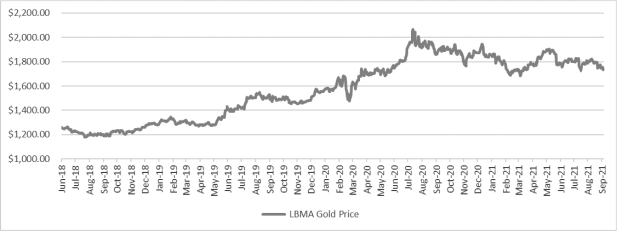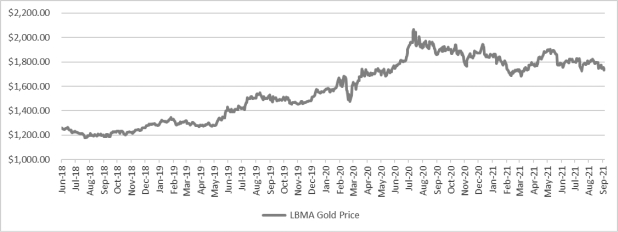A Shareholder may be subject to U.S. backup withholding tax in certain circumstances unless the Shareholder provides his, her or its taxpayer identification number and complies with certain certification procedures.
Non-U.S.
Shareholders may have to comply with certification procedures to establish that they are not U.S. persons, and some
Non-U.S.
Shareholders will be required to meet certain information reporting or certification requirements imposed by the Foreign Account Tax Compliance Act (“FATCA”), in order to avoid certain information reporting and backup withholding tax requirements.
The amount of any backup withholding will be allowed as a credit against a Shareholder’s U.S. federal income tax liability and may entitle such a Shareholder to a refund, provided that the required information is furnished to the IRS.
Estate and Gift Tax Considerations for
Non-U.S.
Shareholders
Under the U.S. federal tax law, individuals who are neither citizens nor residents (as determined for U.S. federal estate and gift tax purposes) of the United States are subject to estate tax on all property that has a U.S. “situs.” Shares may well be considered to have a U.S. situs for these purposes. If they are, then Shares would be includible in the U.S. federal gross estate of an individual
Non-U.S.
Shareholder. Currently, U.S. federal estate tax is imposed at rates of up to 40% of the fair market value of the taxable estate. The U.S. federal estate tax rate is subject to change in future years. In addition, the U.S. federal “generation-skipping transfer tax” may apply in certain circumstances. The estate of an individual
Non-U.S.
Shareholder who is resident in a country that has an estate tax treaty with the United States may be entitled to benefit from such treaty.
For individual
Non-U.S.
Shareholders, the U.S. federal gift tax generally applies only to gifts of tangible personal property or real property having a U.S. situs. Tangible personal property (including gold) has a U.S. situs if it is physically located in the United States. Although the matter is not settled, it appears that ownership of Shares should not be considered ownership of the underlying gold for this purpose, even to the extent that gold was held in custody in the United States. Instead, Shares should be considered intangible property, and therefore they should not be subject to U.S. federal gift tax if transferred during the holder’s lifetime. Individual
Non-U.S.
Shareholders are urged to consult their tax advisors regarding the possible application of U.S. federal estate, gift and generation-skipping transfer taxes in their particular circumstances.
Taxation in Jurisdictions Other than the United States
Purchasers of Shares that are based in or acting out of a jurisdiction other than the United States are advised to consult his, her or its tax advisor as to the tax consequences under the laws of such jurisdiction (or any other jurisdiction not being the United States to which they are subject), of their purchase, holding, sale and redemption of or any other dealing in Shares and, in particular, as to whether any value added tax, other consumption tax or transfer tax is payable in relation to such purchase, holding, sale, redemption or other dealing.
ERISA AND RELATED CONSIDERATIONS
The Employee Retirement Income Security Act of 1974, as amended (“ERISA”), and Code section 4975 impose certain requirements on employee benefit plans and certain other plans and arrangements that are subject to ERISA or the Code section 4975, including IRAs and annuities, retirement plans for self-employed individuals
(so-called
Keogh plans), and certain collective investment funds and insurance company general or separate accounts in which such plans or arrangements are invested (collectively, the “Plans”), and on persons who are fiduciaries with respect to the investment of assets treated as “plan assets” of a Plan.
Non-U.S.
plans, government plans and some church plans are not subject to the fiduciary responsibility provisions of ERISA or the provisions of Code section 4975, but may be subject to substantially similar rules under state, federal or other law (“Similar Law”).
In contemplating an investment of a portion of Plan assets in Shares, the Plan fiduciary responsible for making such investment should carefully consider, taking into account the facts and circumstances of the Plan, the “Risk Factors” discussed below and whether such investment is consistent with its fiduciary responsibilities, including, but not limited to (1) whether the fiduciary has the authority to make the


